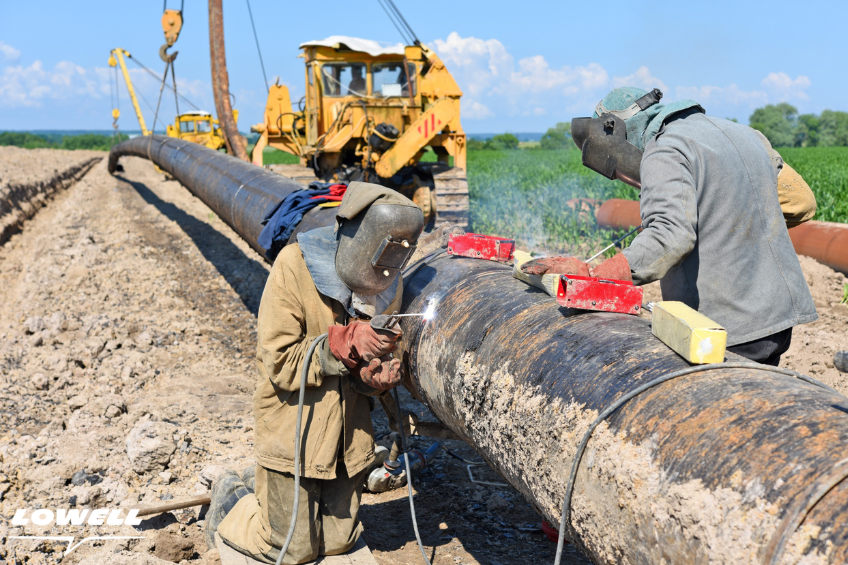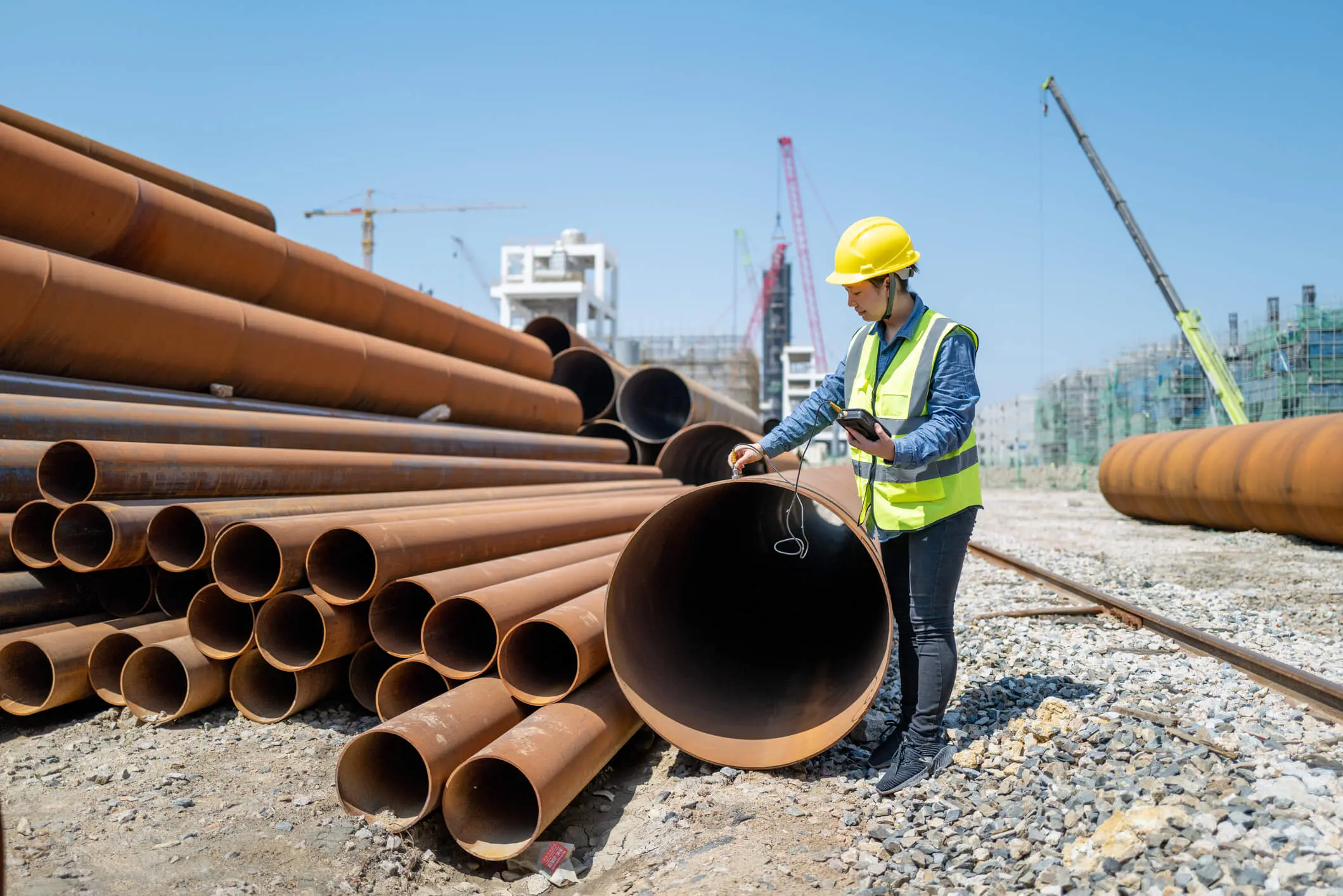How Creek Pipe Company LLC Combines Durability and Eco-Conscious Engineering
Wiki Article
A Comprehensive Overview to Comprehending Pipes and Their Function in Construction
Pipes are crucial parts in construction, offering important features in gas, waste, and water monitoring. Their option and application can substantially affect a structure's effectiveness and safety and security. Different products, such as PVC, copper, and PEX, provide distinct advantages suited to specific needs (Creek Pipe Company LLC). Understanding these factors is crucial for any kind of building and construction project. As one discovers the ins and outs of pipes, the implications for conformity and public health and wellness become significantly evidentThe Relevance of Pipes in Construction
Pipes offer as crucial conduits in building, assisting in the movement of water, gas, and waste throughout buildings and framework. Their duty extends beyond plain transport; they are important for making certain the functionality and safety and security of business and household settings. Effectively installed pipes add to the effective distribution of resources, allowing day-to-day activities such as cooking, home heating, and bathing. Additionally, pipelines play a pivotal role in waste administration, making certain that sewage and wastewater are efficiently removed from living spaces.The significance of pipes is also shown in their effect on public wellness. Poor or defective piping systems can lead to contamination and unsafe problems, making quality materials and installation practices critical. In addition, pipes should abide by numerous building codes and laws, which are developed to shield both residents and the environment. Consequently, the significance of pipes in construction incorporates both functional performance and important wellness considerations.Sorts Of Pipeline Made Use Of in Structure Tasks
Different sorts of pipes play a significant duty in building projects, each designed to satisfy particular requirements and applications. Amongst one of the most frequently made use of pipe kinds are PVC, which is immune and lightweight to deterioration, making it suitable for drain and vent systems. CPVC pipelines, similar to PVC, can hold up against higher temperature levels, frequently utilized in hot water systems. Copper pipes are known for their longevity and integrity, frequently used in plumbing and home heating applications. Galvanized steel pipes, while less common today, were once a standard for supply of water lines because of their toughness. Furthermore, PEX (cross-linked polyethylene) pipes are acquiring appeal for household pipes because of their versatility and resistance to scaling and chlorine. Cast iron pipes are preferred for their sound-dampening buildings, frequently made use of in waste and soil systems. Each pipeline kind offers distinctive features, making certain efficient operation in building tasks.Common Products for Water Lines and Their Feature
In building, the option of pipeline products is important for making certain durability and functionality. Steel pipelines offer toughness and resistance to high stress, while plastic pipes provide corrosion-resistant and lightweight options. Compound pipes integrate the benefits of both products, making them flexible alternatives for different applications.Metal Pipe Options
Metal pipes are important elements in building and construction, providing a variety of choices that satisfy various applications and ecological problems. One of the most common products include steel, copper, and cast iron. Steel pipelines are recognized for their stamina and toughness, making them suitable for high-pressure applications. Copper pipes are preferred for their corrosion resistance and antimicrobial homes, typically made use of in plumbing systems. Cast iron pipes give outstanding audio insulation and are suitable for waste and drainage systems. Each metal type has distinctive advantages; for instance, galvanized steel can resist corrosion, while stainless-steel provides remarkable corrosion resistance. Choosing the ideal metal pipeline relies on elements such as expense, ecological direct exposure, and the specific requirements of the building project.
Plastic Pipeline Advantages
Plastic pipelines have actually acquired appeal in building due to their light-weight nature and convenience. These pipes, made from products such as PVC, CPVC, and PE, deal exceptional resistance to rust and chemical damages, making them ideal for different applications. Their convenience of installment additional boosts their appeal, as they can be reduced and joined without unique devices. Additionally, plastic pipelines are normally a lot more cost-effective compared to steel options, contributing to reduced general task expenditures. Their smooth interior surfaces decrease friction and improve flow rates, while insulation residential or commercial properties help keep temperature level control in plumbing systems - Creek Pipe Company LLC. With a vast array of setups and sizes available, plastic pipelines successfully meet the varied demands of modern-day building tasksComposite Pipeline Characteristics
Compound pipelines integrate numerous materials to leverage their private toughness, leading to enhanced efficiency and toughness. Normally, these pipes consist of layers that might include plastics, metals, and porcelains, each contributing distinct buildings. For circumstances, the internal layer may be made of a corrosion-resistant product, while the external layer offers stamina and impact resistance. This combination enables composite pipes to hold up against severe temperatures and pressures, making them ideal for a vast array of applications, consisting of supply of water and industrial processes. Furthermore, composite pipelines are typically lighter than standard materials, assisting in less complicated handling and installation. Their versatility and adaptability to different atmospheres make them a recommended selection in modern-day building and construction tasks, ensuring longevity and effectiveness in fluid transportation systems.Applications of Pipeline in Pipes Solutions

Electric Conduits: The Duty of Piping in Circuitry
In modern-day building and construction, electric channels play a necessary duty in making sure the risk-free and effective directing of electrical wiring throughout buildings. These pipes offer a protective pathway for electric wires, securing them from physical damage and environmental variables. Various products, such as PVC, metal, and versatile channels, are used depending on the particular demands of the installation.Furthermore, channels assist in arranging circuitry systems, decreasing the risk of electric dangers like brief circuits or fires. They also help with much easier upkeep and upgrades, as cords can be accessed and changed without considerable disturbance to the structure.Proper installation of electric conduits is crucial for compliance with building ordinance and safety and security guidelines. This organized method not just boosts the long life of the electrical system yet also adds to Creek Pipe Company LLC the overall security and functionality of the structure, making electrical avenues important in modern-day construction techniques.Choosing the Right Pipeline for Your Project
Exactly how can one assure the appropriate pipe option for a construction job? The choice procedure starts with recognizing the certain needs of the project, including the sort of fluids being moved, pressure scores, and ecological problems. Product alternatives, such as Copper, pvc, and steel, should be reviewed based upon sturdiness, rust resistance, and thermal properties.Next, one have to consider the pipeline's diameter and flow ability to identify effective procedure. Regulatory criteria and codes should additionally be abided by, as they determine the appropriate materials and techniques for details applications. Consulting with experts and utilizing considerable sources can better help in making informed decisions.Finally, evaluating the cost-effectiveness of different alternatives is vital, stabilizing first costs with lasting maintenance and replacement prices - Creek Pipe Company. By carefully analyzing these aspects, one can confidently select one of the most ideal pipeline for their construction task, assuring both performance and compliance
Maintenance and Examination of Pipes in Building and construction
Appropriate choice of pipes establishes the structure for their long-term efficiency, making upkeep and examination critical components in building and construction. Normal maintenance warranties that any prospective issues, such as leaks, rust, or obstructions, are recognized and resolved immediately, minimizing costly repair work and job delays. Scheduled assessments, consisting of aesthetic evaluations and pressure tests, play a vital duty in examining the stability of pipe systems.Additionally, monitoring ecological aspects, such as temperature changes and dirt problems, can help prepare for deterioration. Utilizing sophisticated modern technologies, such as CCTV for indoor assessments, can boost the effectiveness of upkeep initiatives. It is crucial to record evaluation searchings for and maintenance activities to establish a comprehensive background of the pipe systems. By focusing on maintenance and inspection, building and construction experts can extend the life-span of their piping systems, guaranteeing they run efficiently and accurately throughout the job's period.Often Asked Inquiries
Exactly How Do Pipes Affect Power Performance in Buildings?
Pipelines significantly influence power performance in buildings by managing heating and cooling down systems. Proper insulation and products minimize energy loss, while effective pipes styles decrease water usage, inevitably resulting in lower power intake and operational expenses.What Laws Govern Pipe Setup in Construction?
Rules governing pipeline installation in building and construction usually include nationwide and local building ordinance, pipes codes, and security standards. These assurance compliance with structural integrity, product requirements, and wellness demands, advertising safety and effectiveness in building and construction practices.Can Pipes Be Recycled After Use?
The inquiry of pipe recyclability is substantial. Several products, such as metal and specific plastics, can be recycled efficiently. Nevertheless, the condition and kind of pipe influence reusing usefulness, demanding correct assessment before disposal.
How Do Climate Condition Impact Pipeline Performance?
Climate condition greatly influence pipe efficiency. Extreme temperature levels can trigger expansion or tightening, while wetness might bring about deterioration. Additionally, heavy precipitation can boost dirt pressure, affecting security and general capability of the piping system.What Are the Indicators of Pipe Failing to Expect?
Signs of pipeline failure consist of leakages, unusual sounds, staining of water, lowered water stress, and noticeable deterioration. Routine assessments can aid spot these concerns early, stopping expensive repair services and making certain system functionality in the long term. Pipes play a crucial function in waste management, ensuring that sewer and wastewater are successfully eliminated from living spaces.The importance of pipes is likewise mirrored in their impact on public health. In building and construction, the choice of pipe products is crucial for making sure longevity and performance. Steel pipelines supply stamina and resistance to high stress, while plastic pipelines supply lightweight and corrosion-resistant options. In addition, pipelines are used to get rid of wastewater, connecting bathrooms, sinks, and drains pipes to metropolitan sewer systems or septic tanks.Different kinds of pipelines, such as PVC, copper, and PEX, are picked based on factors like durability, price, and details application demands. Exactly how can one ensure the best pipe choice for a building and construction task?Report this wiki page